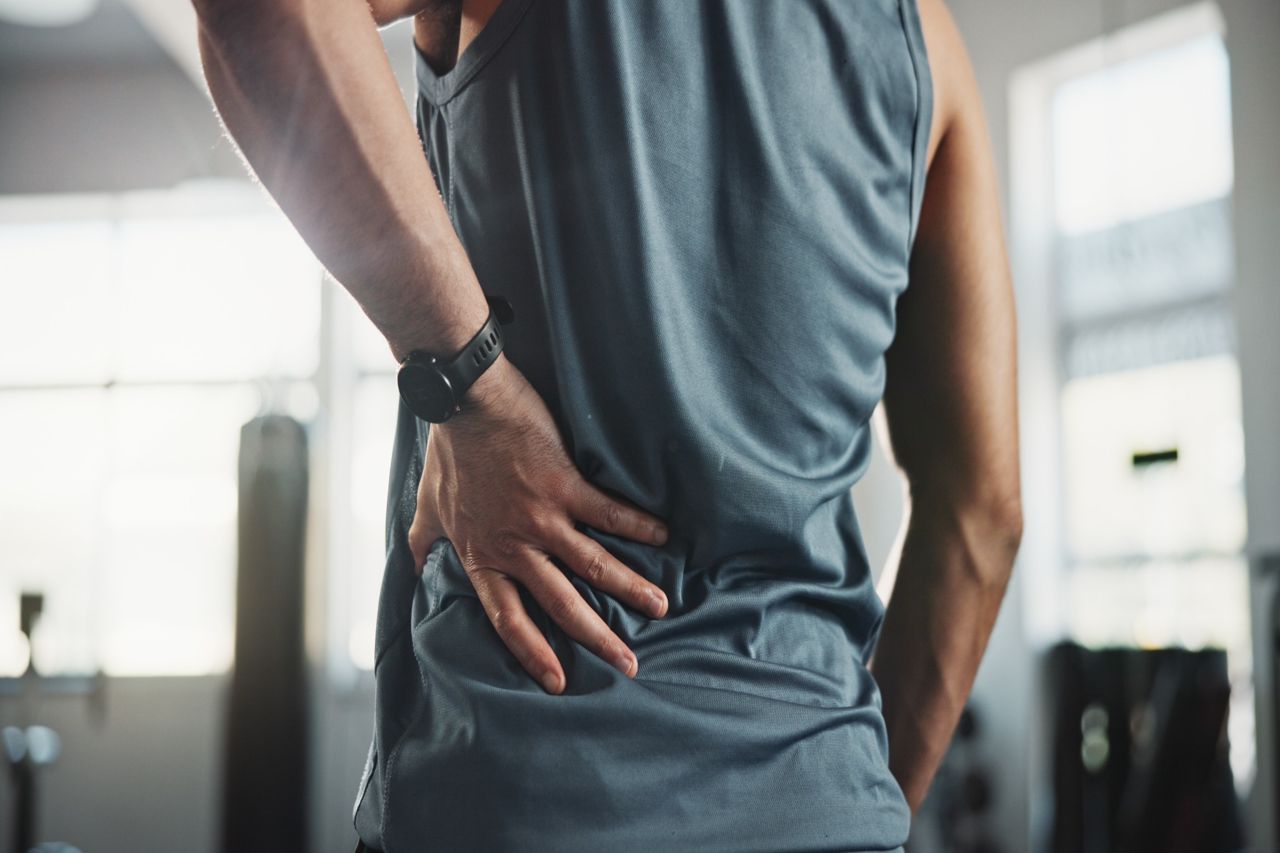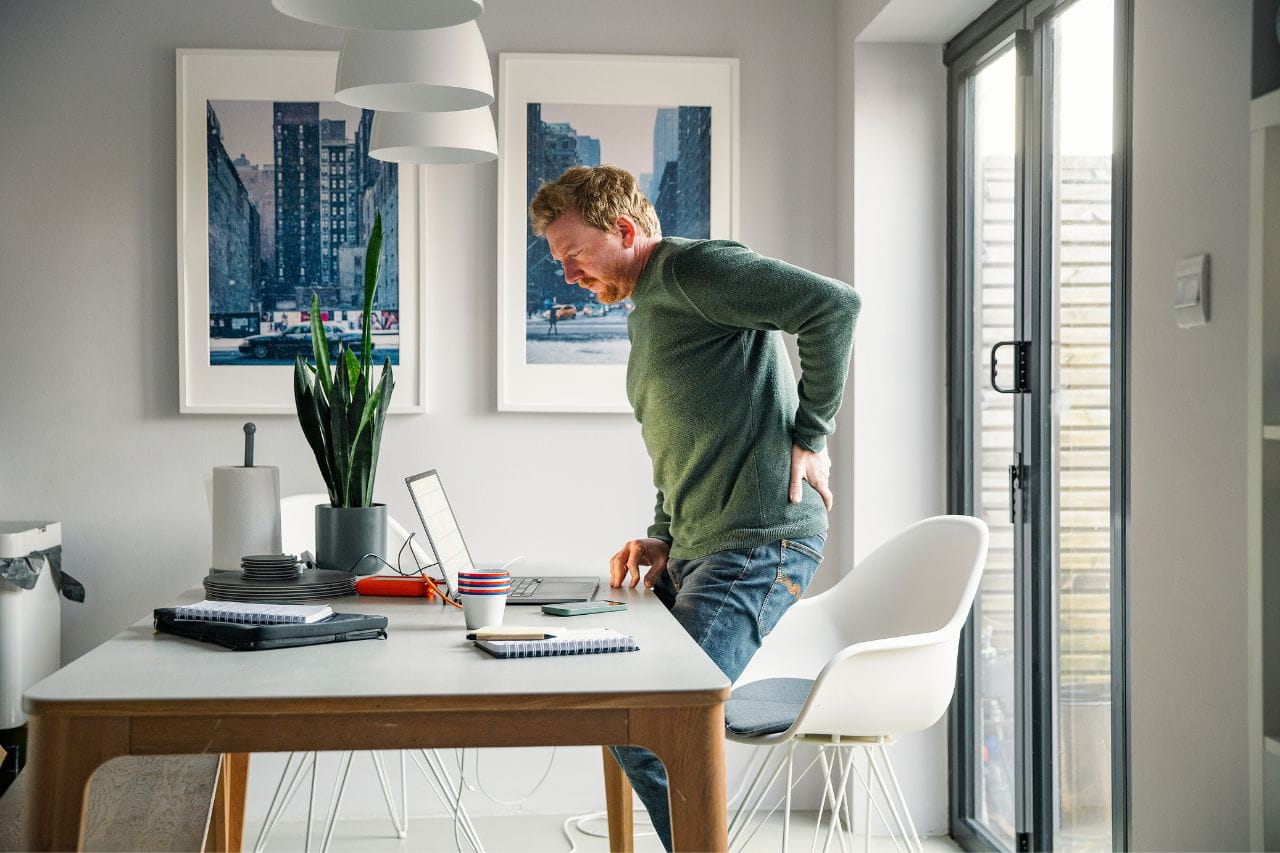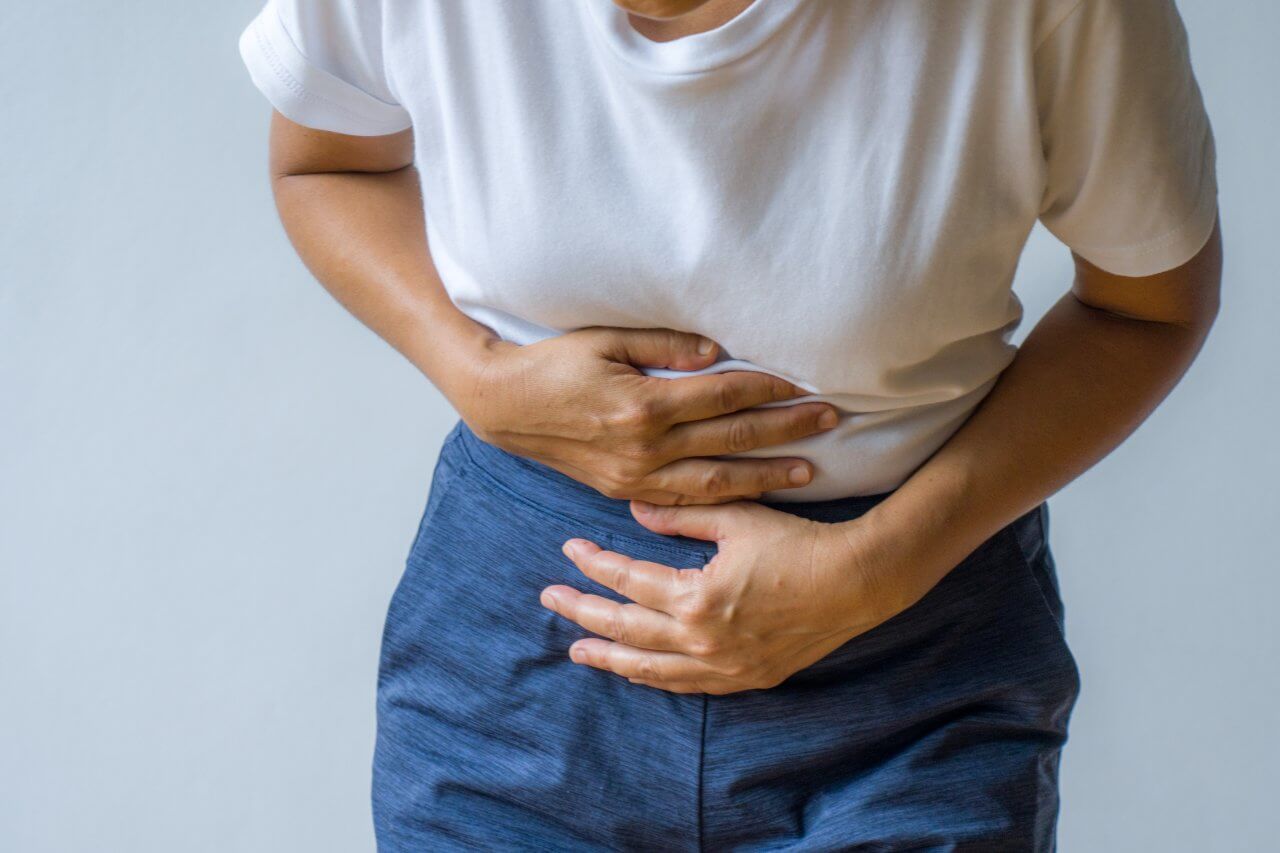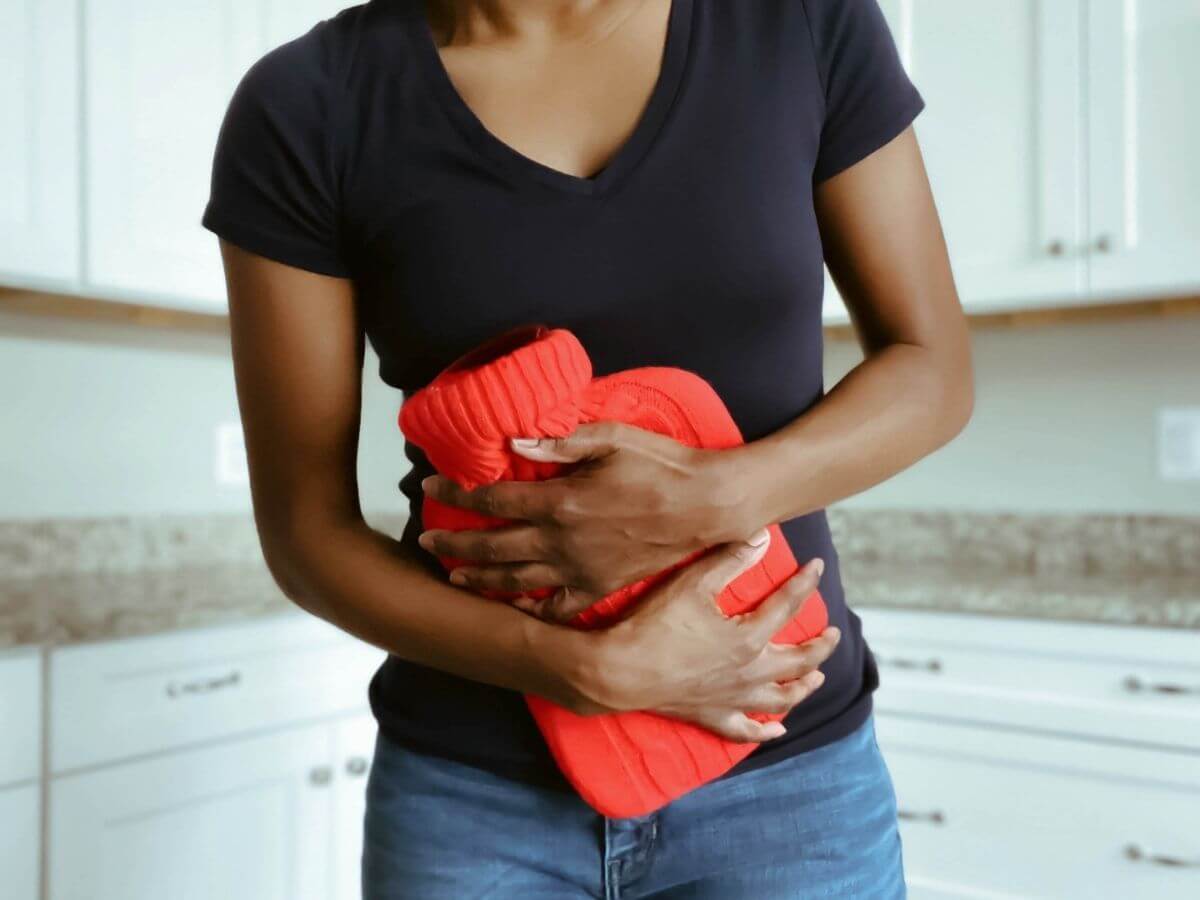Can Constipation Cause Back Pain?

Constipation is a common digestive issue that can cause a range of uncomfortable symptoms. However, many people don't realize it can sometimes be linked to back pain.
While back pain can have many different causes, the relationship between a backed-up digestive system and back discomfort is well-researched and understood. This article explains the connection.
The Link Between Constipation and Back Pain
When you’re constipated, waste material builds up in the colon. This buildup can cause the colon to swell, potentially exerting pressure on surrounding organs and nerves. The pressure can radiate, leading to discomfort that’s felt in the abdomen and elsewhere. The discomfort is often described as a dull, aching pain. In some cases, the pressure from the stool buildup can press on nerves in the lower spine, which can contribute to back pain.
In rare situations, back pain can be a symptom of a more serious condition, and constipation is a related symptom. For example, a tumor or infection impacting the spine could lead to both back pain and constipation. A tight psoas muscle (a core muscle that connects the upper body to the lower body) can also cause low back pain and contribute to constipation.
Fecal Impaction and Referred Pain
A specific and more severe form of constipation, called fecal impaction, can also lead to back pain. Fecal impaction is when a piece of dry, hard stool becomes stuck in the colon or rectum. The pressure from the impacted stool can be a direct cause of lower back pain.
Another potential link is referred pain. This is a type of pain that originates in one part of the body but is felt in another. For example, constipation is a prominent symptom of irritable bowel syndrome (IBS), and while rare, IBS can sometimes cause lower back pain in the form of referred pain.
Constipation, Back Pain and When to Seek Help
Other symptoms may accompany constipation-related back pain, including:
- Abdominal cramping
- Bloating or swelling
- Pain in the abdomen
- Bleeding from the rectum
The back pain associated with constipation often lessens or disappears once the constipation is resolved. If your pain persists after you have a bowel movement, it’s possible that the two issues are unrelated.
You should consult with a primary care provider if you experience constipation that’s severe, lasts for more than a few days, or is accompanied by severe abdominal or back pain, nausea, or vomiting. These may be signs of a more serious issue that requires medical attention.
How Healthcare Providers Address Constipation
Since the treatment for constipation and related back pain depends on the underlying cause, a primary care provider will first work to determine the root of the problem. They may recommend a change in diet, such as increasing fiber intake, or engaging in regular physical activity. Staying hydrated is also a key factor, and a provider may advise drinking more water.
Depending on the cause and severity, a provider may also suggest other treatments. Over-the-counter stool softeners or laxatives may be used for short-term relief. In cases of fecal impaction, more intensive medical treatments might be necessary, and a provider may need to remove the impacted stool.
Ultimately, it’s helpful to be aware that constipation can be a contributing factor to back pain. By understanding the potential connections and symptoms, individuals can better communicate with their primary care provider to find the right treatment and get relief.
Wondering about your digestive health? Call 1.866.462.4180 to speak with a specialist, take a Health Risk Assessment today, or use our provider directory to find a Baptist Health GI provider.
Next Steps and Helpful Resources
Learn More About Gastroenterology Care at Baptist Health
Which Magnesium Is Best for Constipation?
How to Make Yourself Poop
Why Does My Stomach Hurt?



